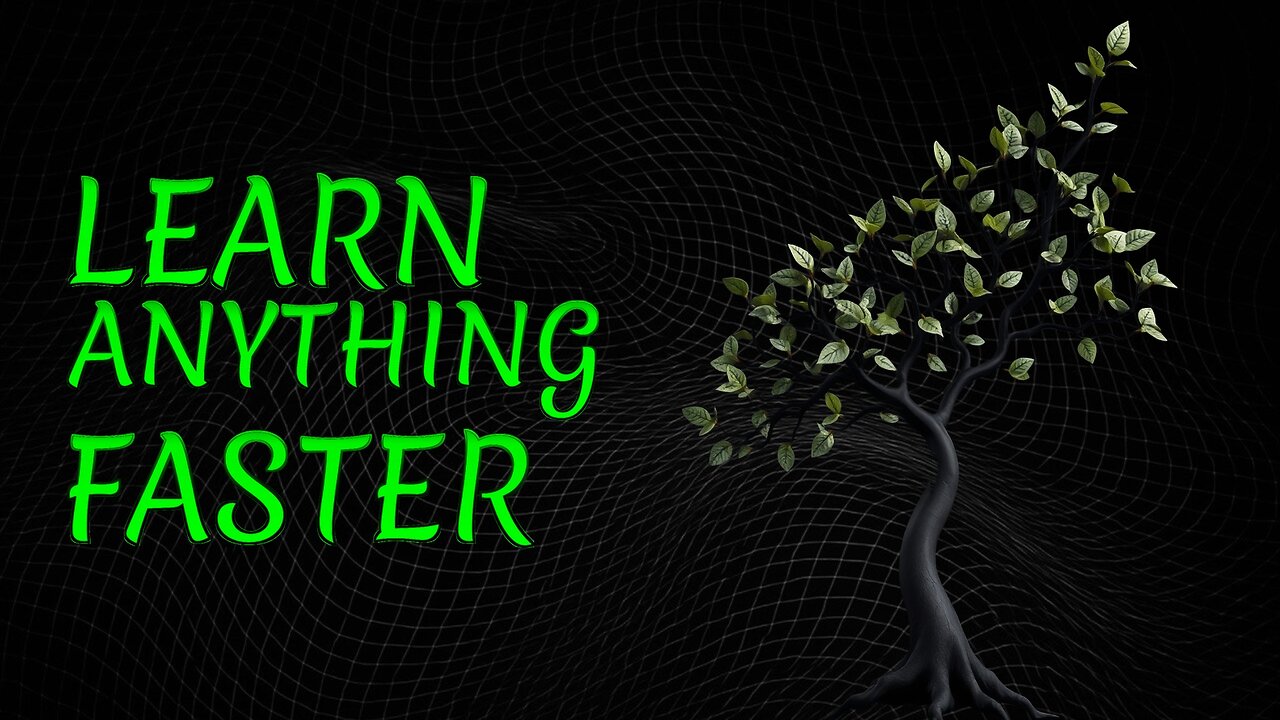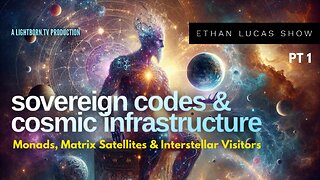Premium Only Content

How to Learn Anything Faster Than Everyone | Understanding Psychology
Title: How to Learn Anything Faster Than Everyone | Understanding Psychology
Description:
Learning quickly and efficiently is a highly sought-after skill in today's fast-paced world. Whether you're a student trying to master a new subject, a professional aiming to acquire new skills, or simply someone with a passion for lifelong learning, understanding the psychology behind effective learning can greatly enhance your ability to learn anything faster than most people.
One of the key principles in accelerating learning is understanding how the brain processes and retains information. The human brain is wired to learn best through active engagement, repetition, and application. Techniques such as spaced repetition, where information is reviewed at increasing intervals, can significantly improve memory retention. Additionally, active recall, which involves retrieving information from memory rather than just recognizing it, is another powerful strategy.
Another crucial aspect is the concept of deliberate practice. This involves focused, purposeful practice with the goal of improving specific skills. By breaking down complex tasks into smaller, manageable parts and practicing them repeatedly, you can achieve mastery more quickly. This approach is particularly effective in fields that require high levels of skill and expertise, such as music, sports, and complex problem-solving.
Mindset also plays a significant role in learning speed. A growth mindset, characterized by the belief that abilities can be developed through dedication and hard work, fosters a more resilient and persistent approach to learning. Individuals with a growth mindset are more likely to embrace challenges, learn from failures, and continuously seek new knowledge.
Moreover, understanding your learning style can optimize your learning process. Whether you are a visual, auditory, or kinesthetic learner, tailoring your study methods to your preferred style can enhance comprehension and retention. For example, visual learners may benefit from using diagrams and charts, while auditory learners might find lectures and discussions more effective.
Lastly, maintaining a healthy lifestyle supports cognitive function. Adequate sleep, proper nutrition, and regular physical activity are essential for optimal brain performance. Engaging in mindfulness practices, such as meditation, can also improve focus and reduce stress, creating a more conducive environment for learning.
By incorporating these psychological principles and strategies, you can learn anything faster than most people. Whether you're preparing for an exam, learning a new language, or developing a professional skill, understanding the psychology of learning can give you a significant advantage.
Tags:
accelerated learning, cognitive psychology, deliberate practice, growth mindset, learning styles, memory retention, spaced repetition, active recall, mindfulness, brain performance
-
 20:48
20:48
BlaireWhite
5 days agoTrans TikTokers Are Crashing Out (Over Nothing)
7.97K5 -
 2:07:06
2:07:06
Side Scrollers Podcast
19 hours agoHasan Piker CAUGHT LYING AGAIN + Twitch URGES LEFTIST IDEOLOGY + More | Side Scrollers
54.4K10 -
 8:40
8:40
MattMorseTV
15 hours ago $7.10 earnedSchumer just KICKED OFF the Left-Wing CIVIL WAR.
11.7K25 -
 21:39
21:39
Nikko Ortiz
2 days agoI Take A North Korean Shooting
14.3K5 -
 1:46:26
1:46:26
The Michelle Moore Show
18 hours ago'The Religion Invasion In the U.S. and the Deep State Agenda' Guest, Mark Taylor: The Michelle Moore Show (Nov 3, 2025)
21.3K21 -
 LIVE
LIVE
TruthStream with Joe and Scott
5 days agoSovereign Codes & Cosmic Infrastructure,Ufo's, UAP's, Monads, Matrix Satellites, Interstellar Visitors, SYRONA #505
332 watching -
 LIVE
LIVE
Lofi Girl
2 years agoSynthwave Radio 🌌 - beats to chill/game to
167 watching -
 5:55:11
5:55:11
MattMorseTV
11 hours ago $93.78 earned🔴Trump's '60 Minutes' INTERVIEW + MUCH MORE.🔴
157K48 -
 2:02:36
2:02:36
Badlands Media
16 hours agoBaseless Conspiracies Ep. 157: Jack the Ripper, the Crash & the Great Disclosure Countdown
35.6K22 -
 2:06:09
2:06:09
Inverted World Live
12 hours agoMysterious Crash at Area 51 | Ep. 134
40K14